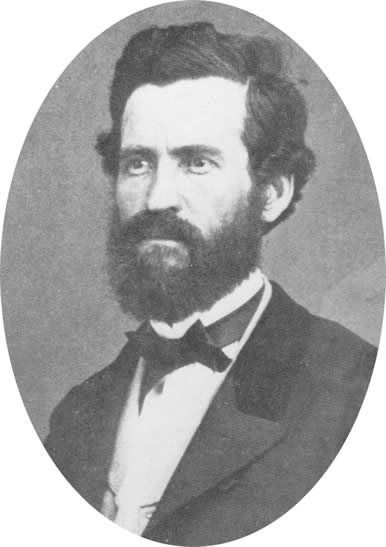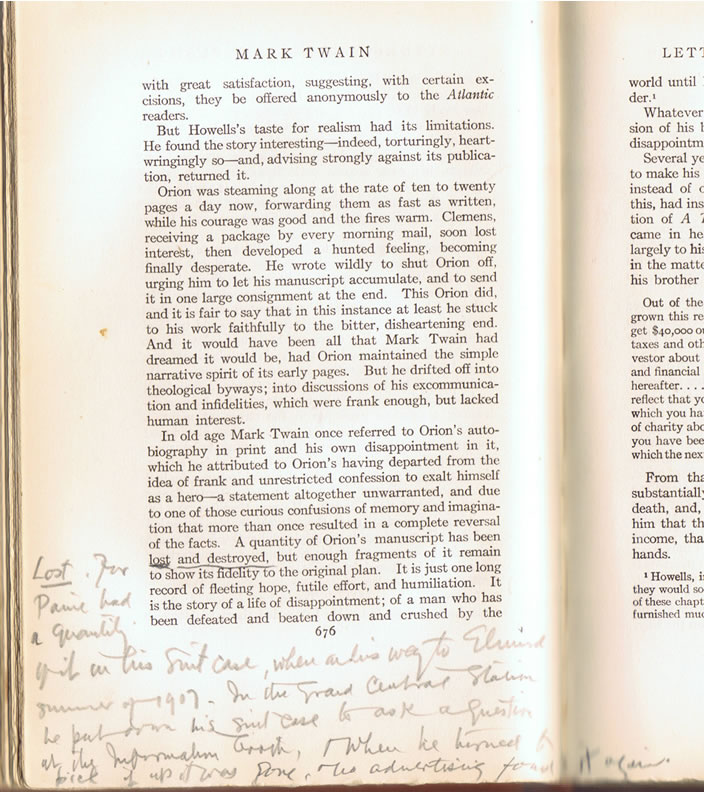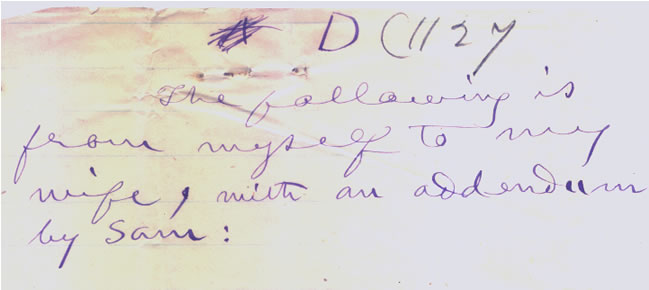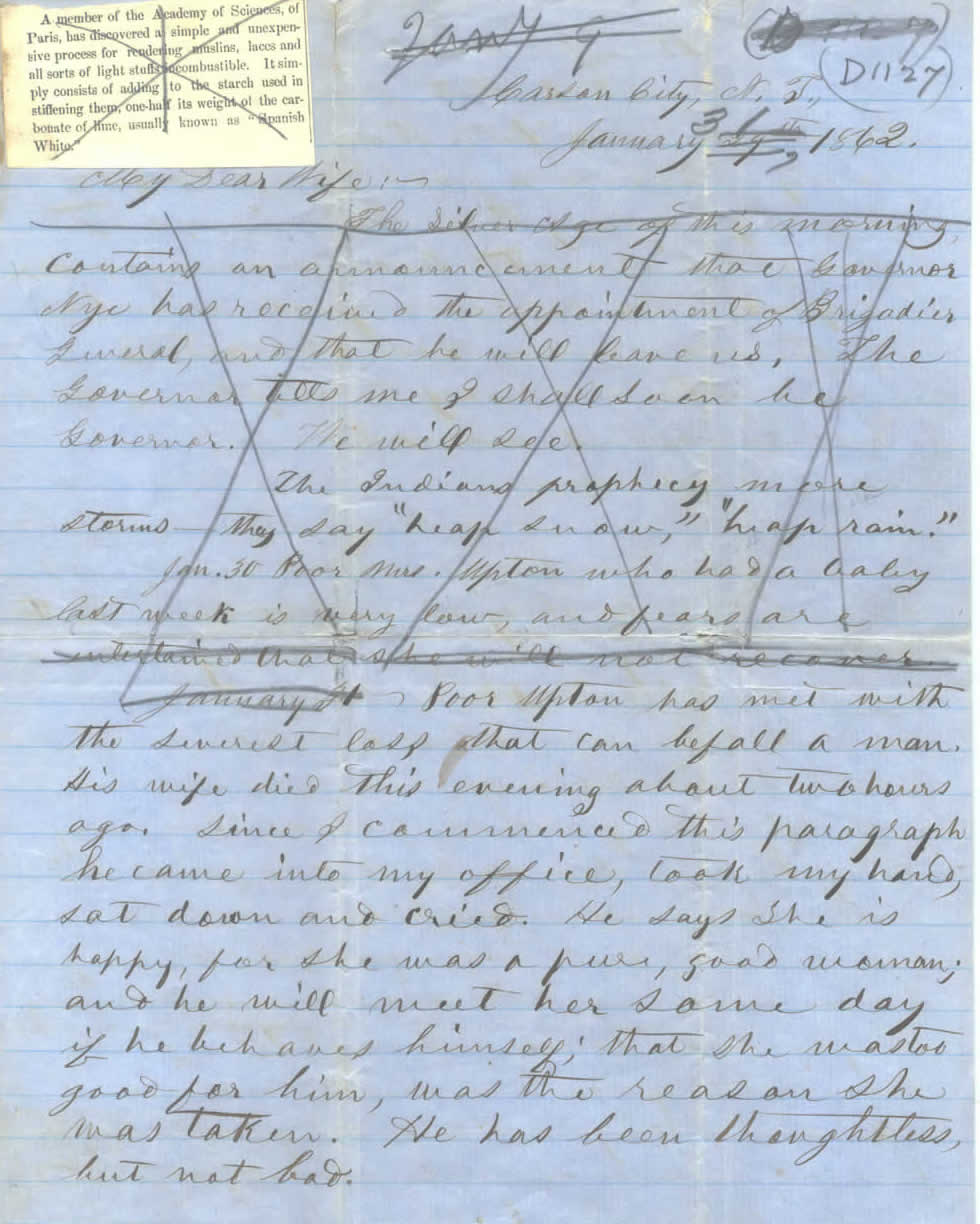Quotations | Newspaper Articles | Special Features | Links | Search
SPECIAL FEATURE
by
Barbara Schmidt
"I think the result is killingly entertaining; in parts absolutely delicious." - Samuel Clemens, 9 June 1880
"It wrung my heart . . . the writer's soul is laid too bare: it is shocking." - William Dean Howells, 14 June 1880
THE LOST AUTOBIOGRAPHY OF ORION CLEMENS


______
Background of Orion Clemens
Orion Clemens, born on July 17, 1825, was ten years older than his famous brother Samuel Clemens (Mark Twain). He was nearly fifteen years old when the family moved to Hannibal, Missouri. While a young man, Orion worked as a clerk in his father's general store. In the early 1840s he worked as an apprentice at a local newspaper and later moved to St. Louis, Missouri. In St. Louis, Orion began studying law under attorney Edward Bates who later served as attorney general for President Abraham Lincoln. After his father's death in 1847, Orion returned to Hannibal and purchased the local newspaper which he renamed Hannibal Western Union. Unable to make a successful living as a journalist in Hannibal, Orion relocated to Muscatine, Iowa in 1853; in 1854 he again relocated to Keokuk, Iowa.
After Abraham Lincoln was elected president in 1860, Orion was appointed secretary to the new government of the territory of Nevada at a salary of $1,800 a year through the influence of his former St. Louis mentor Edward Bates. Sam accompanied Orion to Nevada territory in 1861 after the Civil War had effectively ended Sam's career as a Mississippi steamboat pilot. Sam drifted into mining and newspaper work while his brother served as territorial secretary and often as acting governor. Orion built a home in Carson City and brought his wife, Mollie, and young daughter, Jennie, to Nevada a year after his arrival. Jennie would die there in February 1864. After Nevada became a state, Orion served a brief time as an elected state assemblyman. However, the meager of salary of a legislator and his inability to develop a successful law practice led him to leave Nevada and seek work as a newspaper man on the east coast before finally relocating once again to Keokuk in the mid-1870s.
Sam Suggests the Autobiography
While Sam's career as an author and lecturer continued to rise, Orion's fortunes declined to the point where his younger brother eventually became his primary source of support. In 1880 Sam presented Orion with an unusual proposal for writing his autobiography. In a letter dated February 26, 1880, Sam wrote to Orion suggesting he write two books:
|
...they are so far down on my docket that I shan't get to them in this life. I think the subjects are perfectly new. One is "The Autobiography of a Coward," & the other "Confessions of a Life that was a Failure." My plan was simple -- to take the absolute facts of my own life & tell them simply & without ornament or flourish, exactly as they occurred, with this difference, that I would turn every courageous action (if I ever performed one) into a cowardly one, & every success into a failure. You can do this, but only in one way; you must banish all idea of an audience -- for no man few men can straitly & squarely confess shameful things to others -- you must tell your story to yourself, & to no other; you must not use your own name, for that would keep you from telling shameful things, too. There is another plan which is still better, but it will be very difficult -- it will require a mighty practised pen I suspect: -- to tell the story of an abject coward who is unconscious that he is a coward; & to tell the story of an unsuccessful man who is blissfully unaware that he was unsuccessful & does not imagine the reader sees he was unsuccessful. In these cases the titles I have suggested would not be used. This latter plan is the one I should use. I should confine myself to my own actual experiences (to invent would be to fail) & I would name everybody’s actual name & locality & describe his character & actions unsparingly, then change these names & localities after the book was finished. To use fictitious names, & localities while writing is a befogging & confusing thing. The supremest charm in Casanova's Memoires (they are not printed in English) is, that he frankly, flowingly, & felicitously tells the dirtiest & vilest & most contemptible things on himself, without ever suspecting that they are other than things which the reader will admire & applaud. That is what your coward should do. Your coward should also be, unconsciously, the meanest & lousiest of the human race,-- but he must throw in just a single sentence of detraction of immorality & irreligion here & there to enrage the reader. Rousseau confesses to masturbation, theft, lying, shameful treachery, & attempts made upon his person by Sodomites. But he tells it as a man who is perfectly aware of the shameful nature of these things, whereas your coward & your Failure should be happy & sweet & unconscious. Tackle one of these books, now, & send me the first chapter for suggestion & comment. Mind, you must expect to have to tear up & rewrite the opening chapters several times till you get the hang -- for a man who, at your time of life still uses such phrases as "He looks like he wants to go home," and "Suppose you go & lay down a while," plainly lacks the faculty of nice observation, & as plainly lacks literary training -- apprenticeship. Tackle one of these books, & simply tell your story to yourself, laying all hideousnesses utterly bare, reserving nothing. Banish the idea of an audience & all hampering things. If the book is well done, there’s a market for it. There is no market yet, for the one you are now writing -- it should wait. Love to Molly & all. Yrs Sam (1) |
Scholars have puzzled over Sam's suggested style for Orion's autobiography and why Orion so willingly and eagerly took on the project. Orion's biographer Philip Fanning called the suggestion a "specter of a grotesque parody of an autobiography, an exercise in literary self-abuse" (2). However, Orion liked the idea. He replied almost immediately to his brother:





